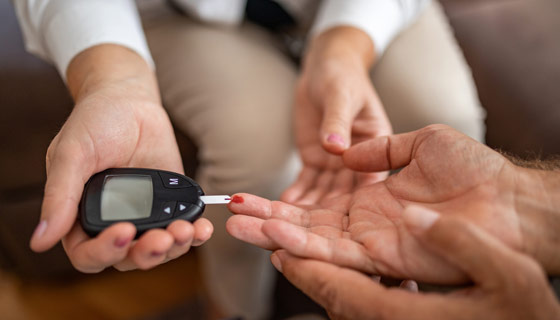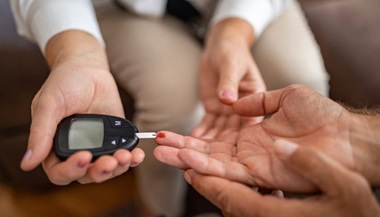5 Health Problems You’re Actually Not Too Young For
Reviewed By:
Reviewed By:
If you’re a woman in your 20s, you probably think you don’t have to worry about health problems such as strokes and colon cancer yet. But according to new research, they could affect you sooner than you think. Recent studies indicate that some disorders associated with older age are affecting younger adults, while others are greatly influenced by what you do in your 20s and 30s.
“With the epidemic of obesity and sedentary lifestyles, we’re seeing a rise in risk factors like high cholesterol, smoking and high blood pressure in younger adults,” says Erin Michos, M.D., M.H.S., associate director of preventive cardiology for the Ciccarone Center for the Prevention of Heart Disease at The Johns Hopkins University. “But it’s important to know that these risk factors are largely preventable. If women make lifestyle changes now, they can greatly lower their risk for developing these health problems.”
Protect yourself from conditions increasingly affecting younger women. Here’s what you need to know.
High blood pressure
High blood pressure (when your blood pumps too forcefully through your veins) is often called a silent killer. That’s because most people who have it don’t have symptoms, even though the disorder is damaging the heart, kidneys, blood vessels and brain.
Seven percent of women between ages 20 and 34 have high blood pressure. While the rate may seem low, the big issue is that young adults are far less likely to be diagnosed and treated for the condition. If left untreated, high blood pressure can result in heart disease later in life and is the leading cause of strokes. In fact, just keeping your blood pressure in check reduces your risk of stroke by 48 percent.
Pregnancy may give you a preview of your risk for high blood pressure and cardiovascular disease. If you have preeclampsia (high blood pressure during pregnancy), you have a much greater chance of having high blood pressure and heart problems later on. Michos explains, “Pregnancy is like a stress test for your body. If you develop complications, it’s a sign that there may be health issues that will re-emerge afterward.”
Type 2 diabetes
You could have diabetes and not even know it. That’s the case for an estimated 3.1 million women in the United States, who likely don’t know they have the disease because they haven’t noticed any symptoms.
Obesity is a leading risk factor for diabetes. Younger generations — even children — have much higher rates of obesity than ever before. Because of that, it is on the rise, says Michos. “Type 2 diabetes and the obesity epidemic are driven by the ways many people live these days. We consume more calories, sweet beverages and fast food, and spend far too much time sitting.”
Hispanic, African-American and Native American women have to be especially careful when it comes to factors that contribute to type 2 diabetes. That’s because they are up to four times more likely to develop the condition. Developing type 2 diabetes also puts women more at risk for heart disease.
You can also experience a form of the disease called gestational diabetes during pregnancy. If you do, you’re 20 to 50 percent more likely to develop type 2 diabetes at a later point. This means it’s crucial to be screened for the disease more often after delivery.
Sitting Disease: How a Sedentary Lifestyle Affects Heart Health

Thanks to the convenience of technology and our modern lifestyles, people in the U.S. are more inactive than ever. Johns Hopkins cardiologist Erin Michos, M.D., M.H.S., associate director of preventive cardiology at the Ciccarone Center for the Prevention of Heart Disease, shares research about the dangers of sitting and what you can do about it.
Strokes
While the majority of strokes occur in people over the age of 65, a recent study found a 32 percent spike in strokes among women ages 18 to 34. This sudden rise is concerning, Michos says. “Although it’s less common for younger women to have strokes, when they do it’s more likely to be fatal.”
What’s behind the increase? Risk factors for cardiovascular disease — high blood pressure, diabetes, high cholesterol, obesity and smoking — have doubled in millennial women. Your risk is also higher than a man your age if you’re pregnant or take birth control pills, both of which can slightly increase your chance of stroke. Autoimmune diseases such as lupus and rheumatoid arthritis, which are more common in women, are linked to a much greater risk for stroke, too.
Colon and rectal cancer
Another study recently sounded an alarm about millennials being increasingly affected by colon and rectal cancers. “The major risk factor for the vast majority of patients with colorectal cancer is just age,” says Nilo Azad, M.D., associate professor of oncology at the Johns Hopkins University School of Medicine. “But now we’re seeing a bit of an increase in a younger population, and we’re not entirely sure why.”
The point to remember is that colorectal cancer (cancer in the colon or rectum) can affect younger people. Talk to your doctor if you see blood in your stool or notice changes in your bowel habits. Because younger people are less likely to have colorectal cancer, there’s often a delay in being diagnosed. If your symptoms don’t improve with initial treatment for another condition such as hemorrhoids, ask your doctor when you should be tested for cancer.
Also, if one of your parents or a brother or sister had colorectal cancer before age 50, you should get tested earlier, advises Azad. Start getting screened 10 years before the age at which your family member was diagnosed.
“There’s no doubt that how you live the first half of your life not only impacts your current state, but it also affects how healthy you’ll be in the second half of your life.”
Erin Michos, Associate Director of Preventive Cardiology
Brain shrinkage
Brain shrinkage sounds pretty scary, but it’s actually a normal part of aging. However, certain factors are linked to a faster decline in brain volume. If you have high blood pressure, diabetes, are overweight or smoke, your brain could shrink more quickly than normal, which can affect your mental capacity, says Michos.
A study shows that making heart-healthy choices in your 20s may protect your brain from shrinking years down the road. The study also found further evidence that taking care of your health can keep your mind intact. That research revealed that people with heart disease risk factors had more amyloid deposits in the brain, which are associated with Alzheimer’s disease.
“There’s no doubt that how you live the first half of your life not only impacts your current state, but it also affects how healthy you’ll be in the second half of your life,” Michos says.
How can you reduce your risk?
Juggling school, career, marriage and parenting can make taking care of yourself an item that’s moved to the bottom of your to-do list. But it’s crucial you make time to do the things that will have a big impact on your health later in life.
“If you’re able to reach middle age with low cholesterol, ideal blood pressure, an optimal weight, not smoking and not diabetic, you’ll be less likely to ever develop these conditions we’re talking about,” Michos says. “Whether you live free of chronic diseases after the age of 50 really depends on the actions you take now.”
Create a healthier future for yourself with these seven recommendations from the American Heart Association:
- Keep your blood pressure in check.
- Control your cholesterol.
- Reduce your blood sugar.
- Increase your daily activity.
- Eat a healthy diet.
- Stay within a healthy weight.
- Quit smoking.
Michos also recommends using a food diary to track calories, a pedometer to measure your activity level and regular medical exams. She reminds us that caring for ourselves has a ripple effect. “When you take steps to shop for and cook healthier meals, and to fit in daily exercise, you influence your family and friends for the better, too.”
Sign Up for Our Free Newsletter

One of the best things you can do to protect and improve your health is to stay informed. Your Health is a FREE e-newsletter that serves as your smart, simple connection to the world-class expertise of Johns Hopkins.








